Position of academic freedom in the world
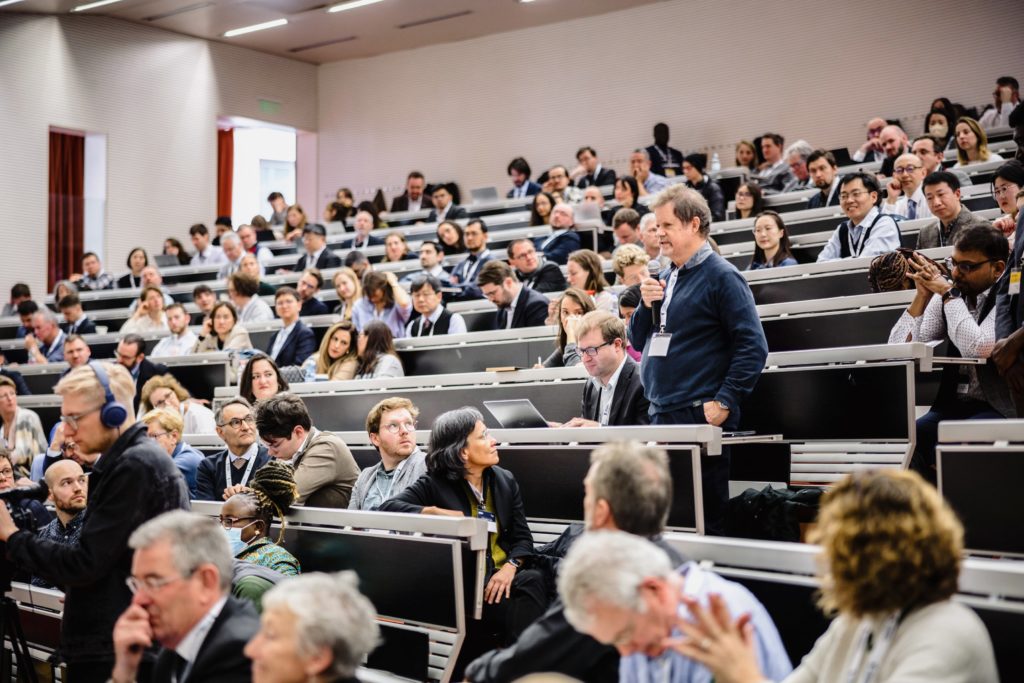
At the opening plenary session of the three-day conference on April 3, the present and former leaders of global and regional academic networks – including György Hajnal professor – discussed challenges related to respecting human rights and academic freedom.
The ordeals experienced over recent years – especially the COVID-19 pandemic and the impacts of the Russia-Ukraine war – presented certain challenges for international academic cooperation, too. In a large number of countries in the world, the freedom of opinion and expression and academic freedom are restricted, and this raises a lot of questions in the course of the various forms of academic cooperation, too. For instance, how should the reviewing committee of an international journal handle a publication coming from a country with an authoritarian system? How can they make sure that the results of the study are based on real data? Or another example: is it a good idea to organise a conference in a country where human rights are enforced to a limited extent? As we reported earlier, for the management of these and other similar issues, last year the American Society for Public Administration (ASPA) set up an ad hoc body and ordered it to work out the principles to be used in international academic cooperation. As the only member from outside North America, György Hajnal professor also participated in the work of the ASPA President’s Committee for International Scholarly Engagement (PCISE). The Committee has recently published its report. The report – which was published in one of the leading scientific journals of the discipline – is adopted or approved by more and more international academic networks: the latest example is the Public Administration Committee of the Joint University Council of the United Kingdom .
At the opening plenary session of this year’s IRSPM conference, the ASPA PCISE report and the questions raised by the Committee were key topics for discussion. At the plenary session, Ileana Steccolini, the President of the IRSPM was the first to welcome the attendees, and she was followed by György Hajnal, Chairman of the conference in 2023. In his welcome speech, the professor noted that the Central European region had been hit by an especially high number of crises over the past period, and that was another reason why he was happy to see that the prestigious international conference selected the Corvinus as its venue, and this would be the place where professionals discuss the current issues.
In his words of welcome to the participants of the conference, Előd Takáts Rector emphasized the importance of trust, academic freedom and global sharing of knowledge: ‘The trust we have in each other allows us to work together effectively, while academic freedom is a precondition of academic excellence, and the profession basically does not exist without international dimensions. We can learn the most from each other, and knowledge makes sense if we are able to share it with one another.’ The Rector added that after working abroad for 20 years, it was a key consideration in his personal career to lead a university where these concepts guide the every-day work.
In the panel discussion after the welcome speeches, it was first Mary-Lee Rhodes (Trinity College Dublin), as the Vice President of the PCISE, who presented the key findings of the PCISE report. Then Allan Rosenbaum, president of ASPA, made his contribution and recalled two cases when he found himself in a very inconvenient situation as a researcher, and when he could have done with some professional guidance. He was the key-note speaker at a conference in China, then in Moscow, and he delivered speeches with critical notes at both conferences. However, local researchers speaking after him attempted to refine what he said in both cases, and tried to depict a picture that was more positive than reality. These were researchers working in countries where authorities strongly restrict academic freedom.
Eris D. Schoburgh, professor of the University of the West Indies, dean of the Faculty of Social Sciences, IRSPM Vice President for Latin America and the Caribbean, said about the PCISE report that it clearly identified the difficulties that the profession had to face in the course of international academic cooperation. At the same time, in the professor’s opinion, at the beginning it is worth reducing the scope of problematic areas in international cooperation raised in the report. ‘What exactly is the actual problem we are trying to solve? The report raises a number of issues from international accreditation procedures through cooperation with international partner institutions to the issue of conference venues, but we will not be able to solve them all at once. We have to narrow our focus and define clear directions for action’, said professor Schoburgh. He also added that the task is made more difficult by the fact that as researchers, they had to protect human rights and academic freedom in a way that they remained apolitical.
Geert Bouckaert, professor of the KU Leuven Public Governance Institute, former president of the EGPA and the IIAS regional and global organisations, one of the most influential researchers of the public administration, public policy and public management field, says that events in recent years have shown that we should clearly distinguish totalitarian or authoritarian states from democratic states. ‘We have to prepare for the fact that the number of countries with totalitarian regimes will grow in the coming decades, and this will lead to a diverging academic world’, said the professor at the beginning of his speech, arguing that the academic community is responsible for keeping the possibility of communication open with researchers in countries with autocratic or dictatorial regimes. Prof. Bouckaert requested his colleagues working in this area to make more efforts in these critical times to understand each others’ points of views and to work on relevant researches that can be utilised in practice.
At the plenary session opening the 2023 IRSPM conference, György Hajnal, professor of Corvinus explained that earlier, as a Vice President of IRSPM for the Eastern European region, and as a member of the European accreditation body (EAPAA) of the area, he often met the problems discussed in the PCISE reports. This is another reason why he was extremely happy to be invited to the Committee, as the only member from outside North America. He added that several surveys had shown that the situation of the Central Eastern European region was extremely poor in the respect of academic freedom, so they still had a lot to do in this field. One of the first steps was the completed PCISE report, and they wish to think about its further development jointly, at the present IRSPM conference
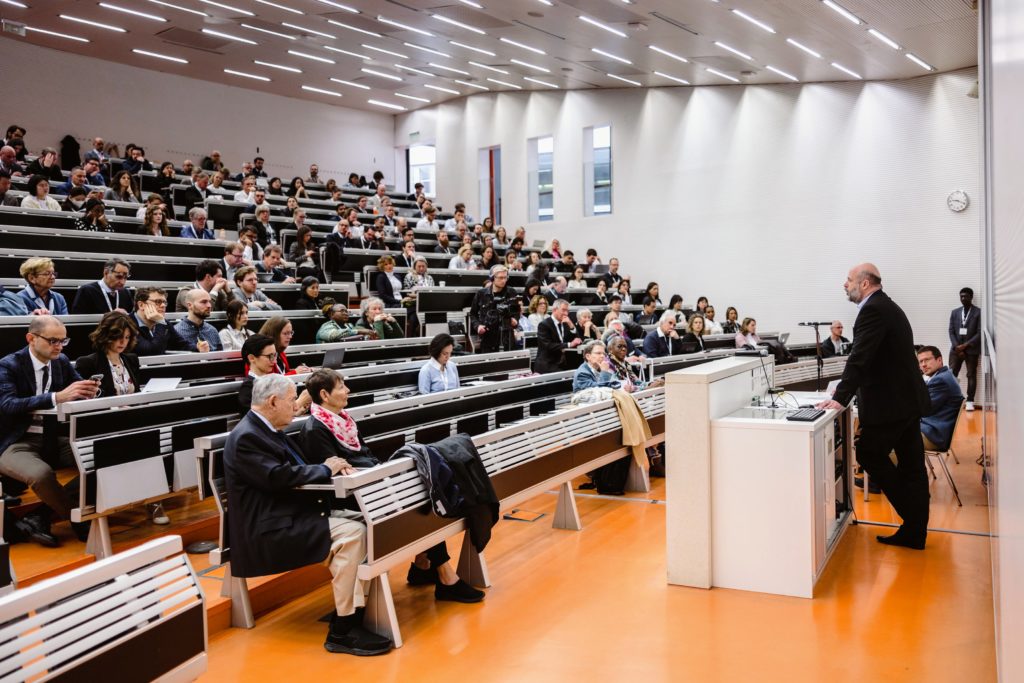
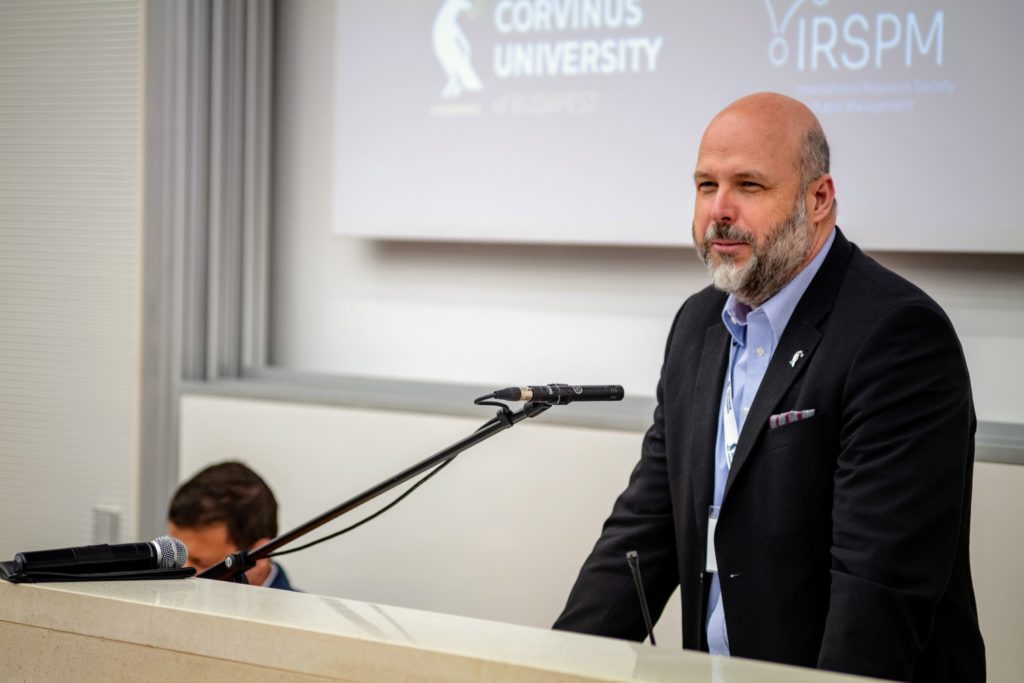
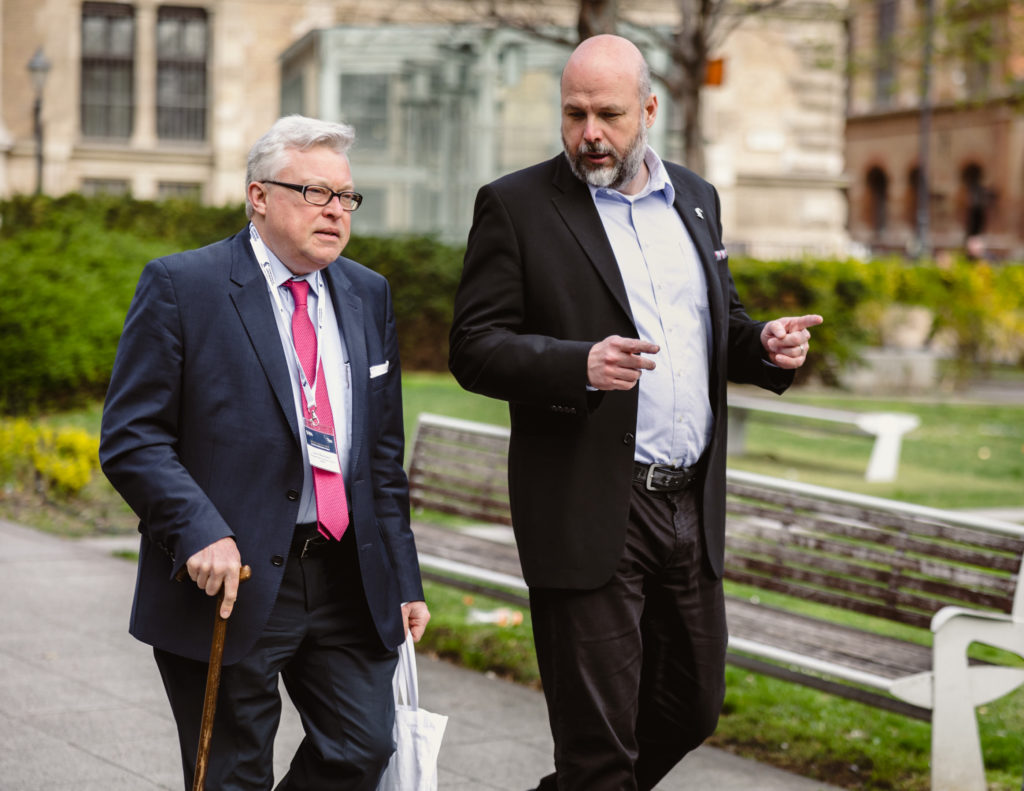
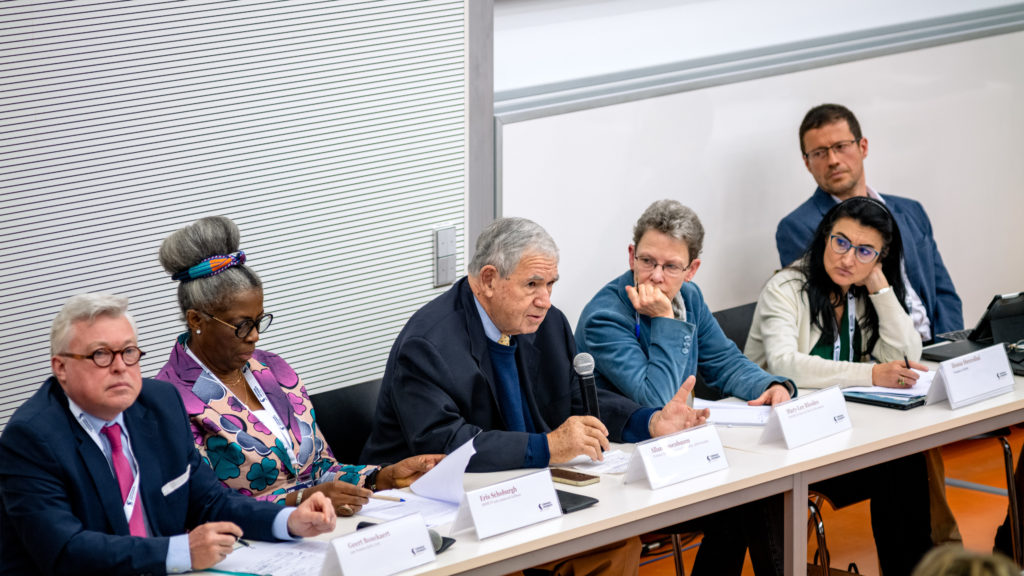
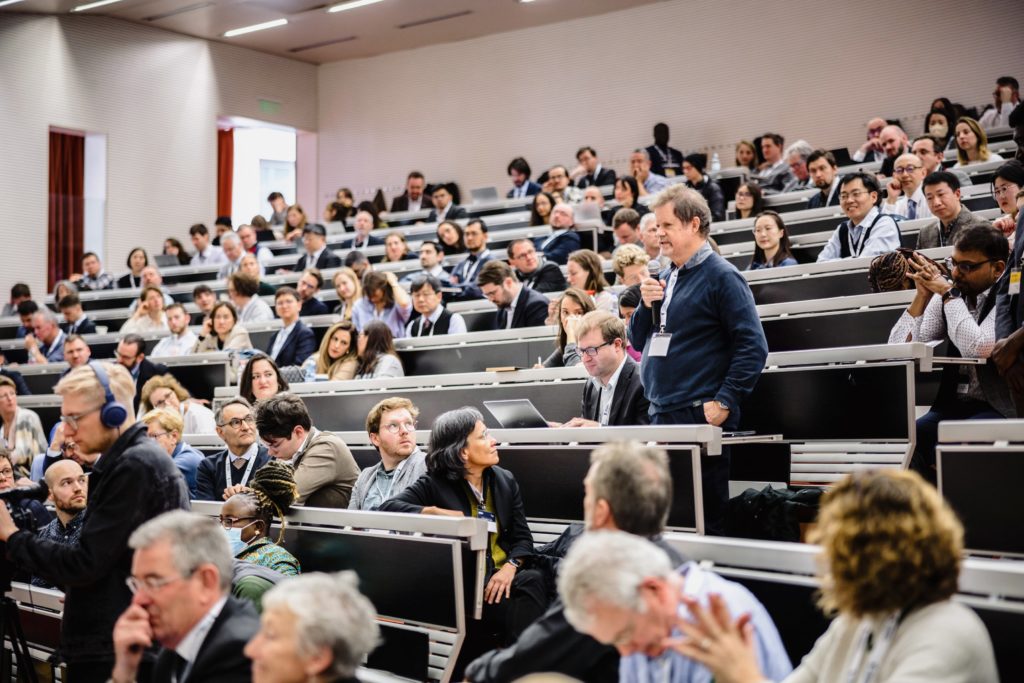
Photos: Ádám Popovics